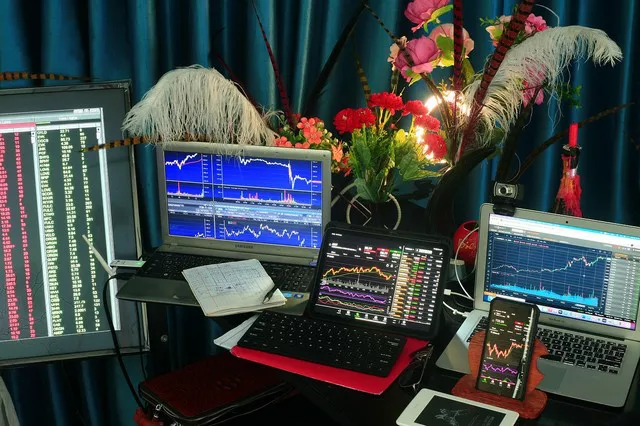Introduction
Futures trading can be a lucrative endeavor for investors seeking to capitalize on price movements in various asset classes, including commodities, currencies, and financial instruments. However, it also carries inherent risks due to its leveraged nature and volatile markets. In this comprehensive guide, we will explore strategies and techniques to safely navigate the futures trading, whether you are a novice trader looking to enter the market or an experienced professional seeking to enhance your skills.
Understanding Futures Trading
Before delving into strategies for safe trading, it’s essential to grasp the fundamentals of futures contracts. A futures contract is a legally binding agreement to buy or sell a specified asset at a predetermined price on a future date. Unlike traditional stock trading, futures trading involves leverage, allowing traders to control a large position with a relatively small amount of capital. While leverage can amplify profits, it also magnifies losses, making risk management paramount.
Risk Management Strategies
Set Risk Parameters: Before placing any trades, establish clear risk parameters, including maximum loss per trade and overall portfolio risk. Adhering to these parameters can help prevent catastrophic losses and ensure longevity in the market.
Utilize Stop Loss Orders: Implementing stop loss orders is a crucial risk management tool in futures trading. These orders automatically close out a position at a predetermined price, limiting potential losses. Traders should adjust stop loss levels based on market volatility and the specific characteristics of each trade.
Diversify Your Portfolio: Diversification is a cornerstone of risk management in any investment strategy. Spread your risk across different asset classes, industries, and contract expiration dates to mitigate the impact of adverse market movements.
Manage Leverage: While leverage can amplify returns, it also increases the risk of significant losses. Exercise caution when using leverage, and avoid overleveraging your positions, especially in volatile markets.
Market Analysis and Research
Technical Analysis: Technical analysis involves studying past market data, such as price and volume, to identify patterns and trends. Common technical indicators include moving averages, support and resistance levels, and chart patterns. Incorporating technical analysis into your trading strategy can help identify entry and exit points with higher probability.
Fundamental Analysis: Fundamental analysis focuses on evaluating the underlying factors that drive asset prices, such as supply and demand dynamics, economic indicators, and geopolitical events. Stay informed about relevant news and developments that could impact the markets you trade.
Sentiment Analysis: Market sentiment, or the overall attitude of traders toward a particular asset or market, can influence price movements. Monitor sentiment indicators, such as investor surveys and options market data, to gauge market sentiment and adjust your trading strategy accordingly.
Developing a Trading Plan
Define Your Objectives: Clearly define your trading objectives, whether it’s generating consistent profits, hedging against price risk, or speculating on market movements. Your objectives will dictate your trading strategy and risk tolerance.
Create a Trading Strategy: Based on your objectives, develop a comprehensive trading strategy that outlines entry and exit criteria, risk management rules, and trade execution parameters. Test your strategy on historical data or through paper trading before risking real capital.
Stick to Your Plan: Discipline is key to successful futures trading. Once you’ve established a trading plan, stick to it consistently, and avoid making impulsive decisions based on emotions or short-term market fluctuations.
Choosing a Broker and Platform
Regulatory Compliance: Ensure that your chosen broker is regulated by a reputable financial authority and complies with industry standards for security and transparency. Verify the broker’s credentials and reputation before opening an account.
Trading Platforms: Evaluate the features and functionality of different trading platforms offered by brokers. Look for platforms that provide real-time market data, advanced charting tools, and order execution capabilities to support your trading strategy.
Cost and Fees: Consider the cost structure of each broker, including commissions, spreads, and overnight financing rates. Compare fees across multiple brokers to find the most cost-effective option for your trading style and volume.
Continuous Learning and Improvement
Stay Informed: The futures markets are constantly evolving, driven by changes in economic conditions, technological advancements, and regulatory developments. Stay informed about market trends, emerging opportunities, and risk factors through reputable financial news sources, industry publications, and educational resources.
Review and Adapt: Regularly review your trading performance and assess the effectiveness of your strategies. Identify areas for improvement and adapt your approach based on changing market conditions and lessons learned from past trades.
Seek Professional Guidance: Consider seeking guidance from experienced traders, financial advisors, or mentors who can provide valuable insights and guidance based on their expertise and experience in futures trading.
Conclusion
Trading futures can offer lucrative opportunities for investors, but it also carries inherent risks that must be managed effectively. By understanding the fundamentals of futures trading, implementing robust risk management strategies, conducting thorough market analysis, developing a comprehensive trading plan, choosing the right broker and platform, and committing to continuous learning and improvement, traders can navigate the futures markets safely and maximize their chances of success. Remember that patience, discipline, and perseverance are essential qualities for long-term success in futures trading.


